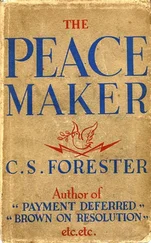Some husbands, sitting silent, could have let her words pass unheeded, practically unheard, but that was impossible to Pethwick. He was far too sensitive a man. He listened, and every word hurt. The stale bread and butter he was trying to eat at the kitchen table turned in his mouth to something more like sawdust than ever. The bitter strong tea to which he had looked forward was too bitter to drink. He pushed his cup away and rose from the table, to be censured again, of course, for the sin of waste. Mary had no objection to making use of the most ridiculous charges against him. They gave her time to think of more wounding things without having to check her speech.
Only one thing ever caused her to pause. It came now, while Pethwick stood waiting for the kettle to boil before beginning to wash up. Mary said suddenly that she could no longer bear the sight of him. It was a splendid excuse for moving away with dignity. Pethwick heard her go along the hall and into the dining-room, and he heard the sideboard door there open and close. He knew why. Then in a little while the kitchen door crashed open again and Mary came back to renew the onset, all the while that Pethwick was trying to wash clean the greasy dishes and saucepans.
When the washing up was completed Pethwick went into the drawing-room and unpacked from his bag the thirty-one exercise books which contained the physics homework of Vb, but in the next two hours he only succeeded in marking two of them, and those were during the two intervals when Mary went into the dining-room to the sideboard cupboard. The other twenty-nine took him hardly more than an hour after Mary had gone up to bed, heavily and slowly, pulling herself up by the banisters.
And if it be asked why Pethwick endured treatment of this sort without revolt, the answer can only be found in his heredity and his environment. The saddler, his father, had been a thoughtful little wisp of a man; his mother had been a big masterful woman of generous figure, not at all unlike, in her young days, the woman Pethwick married—who was her niece, and, consequently, Pethwick's cousin. That big bullying mother of his had much to answer for. She won her little white-faced son's love and frightened him out of his life in turns.
The years of Edward Pethwick's adolescence were a lunatic time, when there was war, and air-raids, and his father's earnings amounted more than once to nearly a thousand pounds in the year. Mrs. Pethwick lived gloriously, never more than half-drunk but rarely less, and in time Mr. Pethwick came to follow her example. Other people bought pianos and fur coats; the Pethwicks made a more magnificent gesture still and sent their son to a secondary school instead of putting him to work at fourteen. They destined him to be the first member of their family on either side to earn his living by his brain instead of by his hands.
The result was that Edward Pethwick matriculated at sixteen before the war was over, and took his degree at nineteen very brilliantly indeed just before his parents quitted a world where a saddler's earnings had shrunk to an amount which would hardly suffice to make two people drunk even once a week.
Where the mathematical talent came from in Pethwick's make-up it is hard to tell. That particular mental twist is strongly hereditary, but it is hard to find any other example of it either in Pethwick's father's family or in his mother's. But as none of them, as far as can be ascertained, ever stayed at school long enough for any talent of that sort to be discovered it is possible that it was present but latent among them.
Pethwick married at twenty. He would have had to have been a clever man to avoid that fate. For on the death of his parents his aunt had taken care of him, and within the year the combined efforts of the whole of his aunt's family were successful in their aim. It was a tremendous prize, for Pethwick was a member of a profession, a school-teacher, not merely several rungs higher up the social ladder than his wife's family, but he might be said to be on another ladder from theirs altogether.
His very salary at twenty was far larger than his father-in-law earned at fifty. If Mary had not married him she would have had to hope that the time would come when perhaps some shop assistant or lorry driver would in an unguarded moment give her the opportunity of snatching him out of bachelorhood.
As it was, Mary won a colossal prize—a house with three bedrooms in it and no lodgers at all (until she married Mary never lived in a house with less than two families); a husband with a job which more likely than not would continue safely for forty years (he was the only man she knew with a job of more than a week's permanency); more clothes than she could wear and more food than she could eat, where previously there had been no certainty of even a minimum of either. Shop-keepers would treat her with deference, where previously she had been accustomed to a state of society where the shop-keeper was a man of social distinction to whom customers deferred.
In eleven years Mary had grown used to it—eleven years of nothing much to do and no particular desire to do it. For that matter, in two months Mary had grown bored with her new house and her new furniture so that even her mother's generous envy was no longer sweet to her. There was a bottle of stout to drink at lunch time. Her mother liked gin but could so rarely afford it that it was nice to have some handy when she came.
And when she went to visit her family and in the evening went, as a matter of course, to the "King's Arms," it was nice, when her turn came, to say, "Won't you make it a short one this time?" and to have a Scotch herself, and to take out of her purse a couple of half-crowns to pay for all—more than her father could spend there in a week without going short on something else. It was not very long before Pethwick was quite used to coming home to a wife with something the matter with her temper.
If only Mary had found something to keep her occupied before the habit of solitary drinking took hold of her, she might have been a good wife. If children had come—lots of them—or if Pethwick had been a severe taskmaster, or if Mary had been ambitious as regards clothes, or social position, or food, or if, incredibly, she had developed a talent for art or literature, matters might have been different. But as it was she had plunged into idleness, she had found idleness unsatisfying, and she had come to dull her racing mind with drink. After all, it was excusable. The only people Mary knew considered a man fortunate to be drunk, and it took so little even now, to unbalance her that the habit was easily formed.
Nor was her husband any help to her. He was far too queer a person. He could never see any attraction in drink—he had the complete distaste for it which occasionally characterizes the offspring of drunken parents—and he was a fool about his wife. She and his mother were the only women he had ever known, and he thought women were marvellous beings, and ten years of married life had no more widened his knowledge of them than ten years of mathematical research had done.
Pethwick put Vb's physics homework away in his bag, switched off the light, and went up to bed. The nightly routine of washing his hands and cleaning his teeth relieved his mind of much of the tension and distress the evening had brought him, and when he went into the bedroom Mary was, heaven be praised, already asleep, snoring a little, with her clothes strewn about the room. Pethwick put on his ragged pyjamas and climbed quietly in beside her. There were nights when Mary's visits to the dining-room sideboard only made her more and more wakeful and, consequently, quarrelsome, and these were nights of purgatory for Pethwick, but happily this was not one of them.
He could compose himself on the pillow and allow his current of thought, clear now, and unhurried, to flow through his mind. He thought about Officers' Training Corps, and Dorothy Laxton and Vb's bad behaviour and the chance of cramming Dawson through the intermediate B.Sc. this summer. And while that side of his brain was digesting these matters, the other side was developing the consequences of his mathematical discovery of that afternoon. It went steadily on regardless of his other thoughts, like a clock ticking in a drawing-room where a party is going on, attracting no attention but turning the hands unfalteringly.
Читать дальше












